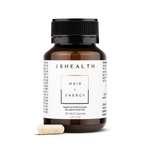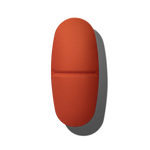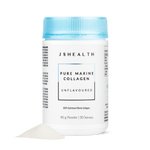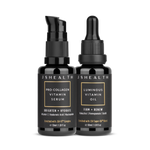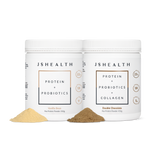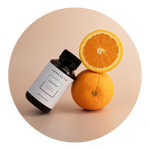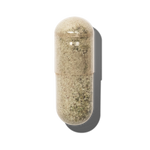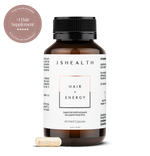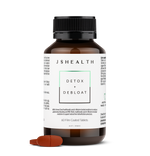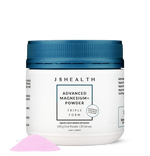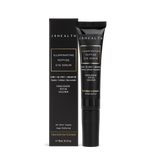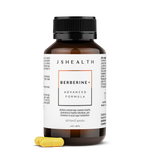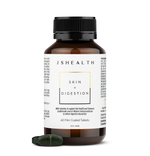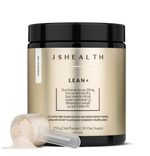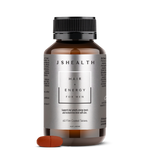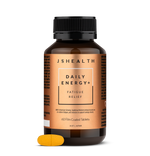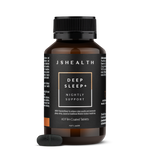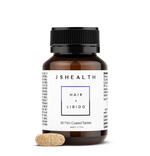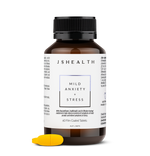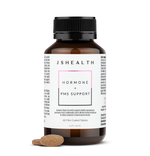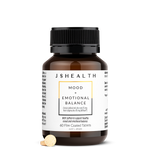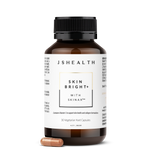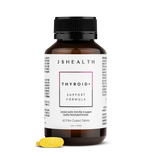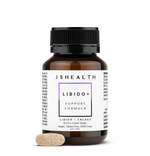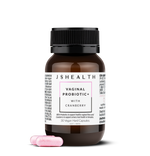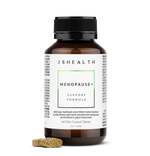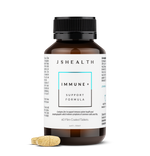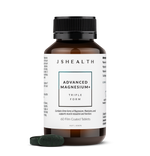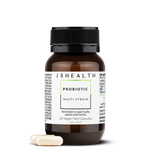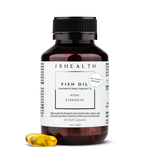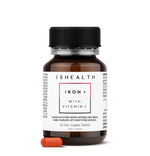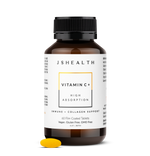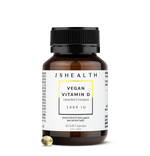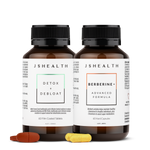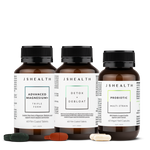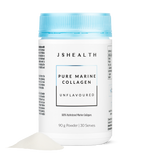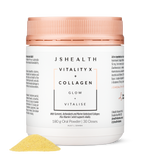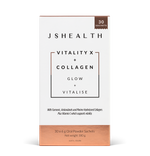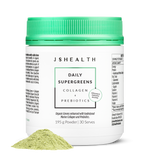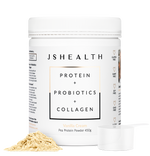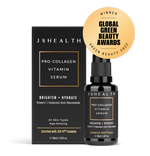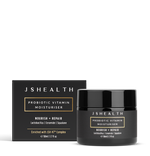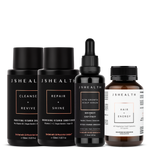What Is Folic Acid?
If you’re expecting or planning for pregnancy, you have likely heard about the importance of including Folic Acid in your diet. But did you know that Folic Acid offers nourishing benefits for everyone? Taking this hero nutrient can help you maintain a healthy mind and body for years to come.
Nutrition is one of the three main pillars of health: physical activity, diet, and sleep. Having a well-rounded diet means you eat a variety of foods that give you most of the nutrients your body needs to function optimally.
There are a number of vitamins, minerals and nutrients that are important to consume regularly. Folic Acid, or Vitamin B9, is one such nutrient.
Let’s take a closer look at what Folic Acid is, other important B vitamins, and why Folic Acid is important.
What Are the B Vitamins?
You probably already know that there are several vitamins that you need to consume regularly, including vitamin A, vitamin C, vitamin E and vitamin K. However, the B vitamins are especially important as your body uses them for several essential bodily functions, including energy metabolism and transporting oxygen.
There are a total of eight B vitamins that your body uses. Below is a closer look at each one of these vitamins and why they’re so important to your overall health and wellness:
Thiamin (B1)
Thiamin is a water-soluble vitamin naturally occurring in fish, seeds, nuts, beans, and peas. This vitamin helps to support an optimal metabolism rate.
Metabolism is how the body obtains its energy to function, making Thiamin an important nutrient for maintaining energy levels.
Riboflavin (B2)
Riboflavin is a vitamin that plays a number of roles within the body. This vitamin is a component of various enzymes that play important roles in metabolism, cellular growth, and energy production. Rich sources of Riboflavin include dairy-derived foods, such as meat and eggs.
Niacin (B3)
Vitamin B3 can come in many different forms, but all of them are considered to be a form of Niacin. These molecules are utilised within the body in the form of nicotinamide adenine dinucleotide (NAD).
NAD is a vital molecule that’s required by more than 400 different enzymes to function properly. Meats like fish, poultry and red meat tend to be high in Niacin, but some vegetarian sources do exist, including peanuts, quinoa and spinach.
Pantothenic Acid (B5)
Vitamin B5 is an important nutrient that is involved in the production of key enzymes like Coenzyme A. Like most of the other B vitamins, Pantothenic Acid is also crucial for metabolism. Natural sources for this nutrient include dairy, meat, mushrooms and some grains.
Pyridoxine (B6)
Vitamin B6, also known as Pyridoxine, is naturally found in fruits and veggies. This vitamin plays a role in protein metabolism, neurotransmitter synthesis and immune system support. It’s a water-soluble vitamin commonly fortified into foods to help ensure that the general population consumes enough of it to avoid deficiency.
Biotin (B7)
Biotin, also known as vitamin B7, plays an important role in hair and skin health, providing nourishing power directly to your hair and scalp. Dietary biotin can be found in several different whole foods, including dairy, whole grains, meat, fruit and vegetables.
Folic Acid (B9)
Folic Acid is a general term used to describe the different types of vitamin B9. This nutrient is incredibly important in growth, especially during the beginning stages of human development, when cellular division and growth occur quickly. The vitamin also plays an important role in the breakdown of molecules like homocysteine and the production of red blood cells.
Often, Folic Acid is added to commonly produced food products like rice, flour, cereal and bread. One of the most common forms of Vitamin B9 is known as Folate and is naturally occurring in foods like legumes, leafy greens and eggs.
Cyanocobalamin (B12)
Vitamin B12 is an important vitamin as it plays a direct role in your overall energy levels. It also plays a crucial supporting role in maintaining the health of your nerve cells and the development of red blood cells.
It’s essential to be mindful that B12 is predominantly found in animal products, including meat, poultry, fish, eggs, milk and dairy. For our vegans and vegetarians, it’s crucial to ensure you receive adequate B12 to maintain optimal health. Stay informed and consider alternative sources or supplements to meet your daily needs.
For these individuals, it’s recommended to take a supplement formula that contains B12 to help avoid any deficiencies.
Why Is Folic Acid Important?
It’s common for people to oversimplify the benefits that particular vitamins can offer. For example, Vitamin C is well known as being the vitamin that helps support your immune system. While that’s absolutely true, Vitamin C isn’t one-dimensional.
It also plays a key role in a dozen other essential functions within your body. The same concept applies to Folic Acid.
Below is a closer look at the various functions of Folic Acid and why it’s so important to include in your nutritional arsenal.
Prenatal Health
Becoming a mother is no easy feat. One of the most important aspects of being an expecting mother is providing your unborn child with the nutrition it needs to grow and develop properly. As mentioned earlier, Folic Acid is extremely important during the beginning stages of human development.
As such, it’s a key component of prenatal nutrition, so expecting mothers, women of reproductive age, and breastfeeding individuals should ensure they get enough each day.
Red Blood Cells
Red blood cells are created in your bone marrow and play an essential role in transporting various gasses (such as oxygen) throughout your body. Within these red blood cells is the protein haemoglobin, which binds to these gases and carries them where they’re most needed.
Having a healthy supply of red blood cells means that your blood can carry more oxygen to fuel the cells and tissues inside your body. Red blood cells only have a lifespan of a few months, so the body is constantly producing new cells to replenish those that are lost.
Iron is well known as a mineral that helps to support your red blood cells, as it’s a precursor to haemoglobin. However, Folic Acid is just as important as it helps to produce new red blood cells and aids in their rapid development.
DNA Repair
Folic Acid is involved in DNA synthesis and repair, which is essential for cell growth and division. Without enough Folic Acid, the body's ability to repair damaged DNA can be impaired. Folic Acid also plays a role in the synthesis of nucleic acids, which are the building blocks of the genetic code.
Types of Vitamin B9
Vitamin B9 goes by many different names, including Folate and Folic Acid. However, there are several forms of Vitamin B9, including:
- Calcium folinate
- Folinic acid
- D-methylfolate
- Dihydrofolate (DHF)
- Tetrahydrofolate (THF)
- 5-Methyltetrahydrofolate (5-MTHF)
- 10-Methylenetetrahydrofolate (10-MTHF)
These different forms of B9 have different uses, and some are better absorbed into the body than others.
The Bottom Line
Folic Acid is an essential nutrient that plays a crucial role in development, DNA health, and red blood cell production. It’s one of the many B vitamins, each with its own unique function in the body. While Folic Acid can be found in many foods, including leafy green vegetables, citrus fruits and beans, it’s also commonly added to fortified foods and supplements.
As an essential vitamin, it’s important to ensure you’re getting enough of this vitamin consistently — particularly if you are considering pregnancy in the near future. If you’re currently pregnant or trying to conceive, it’s important to talk to your healthcare provider about some of the specific changes to your diet that you may need to make. Potentially, this could include your daily Folic Acid intake.
Taking a dietary supplement containing Vitamin B9 is a quick and effective way to help support and nurture your future child.
Sources:
Riboflavin – Vitamin B2 | The Nutrition Source | Harvard T.H. Chan School of Public Health
Niacin - Health Professional Fact Sheet | NIH
Pantothenic Acid – Vitamin B5 | The Nutrition Source | Harvard T.H. Chan School of Public Health
Vitamin B6 - Health Professional Fact Sheet | NIH
Folate (Folic Acid) – Vitamin B9 | The Nutrition Source | Harvard T.H. Chan School of Public Health
B Vitamins | The Nutrition Source | Harvard T.H. Chan School of Public Health
